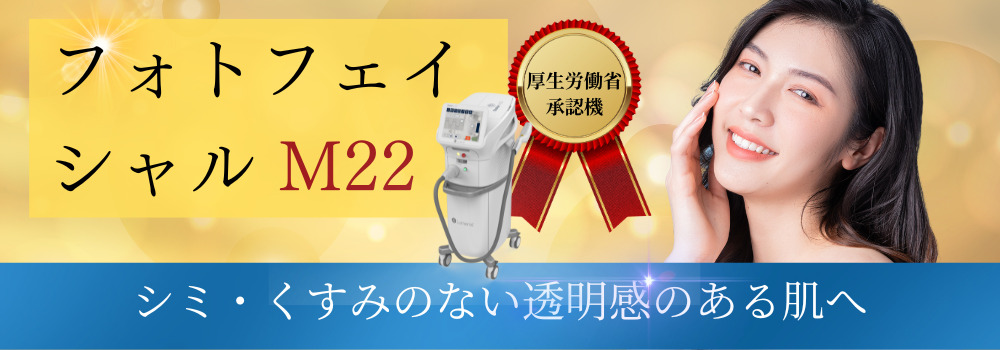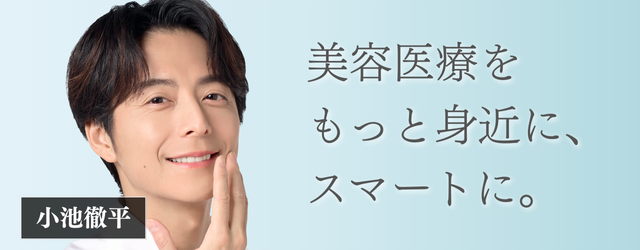Doctor's Supervision] Photofacial makes you "Older? A doctor explains in an easy-to-understand way.
- I've heard that if you keep doing photofacials you'll get older, is that true?"
- I'm worried that if I stop having photofacials, I'll get old..."
- I've heard that photofacial is a light therapy and that it causes photoaging, but is that safe?"
Hello, I am a doctor at Smart Skin Clinic.
Do you have any of these problems or questions?
You have gone to the trouble of undergoing a procedure to become beautiful, but this kind of information is out there, making you wonder if you should really undergo the procedure..." You may feel uneasy.
In order to resolve such concerns and worries, I will explain the answer to the question, based on medical evidence and my own experience, "Does photofacial make me look older?" based on medical evidence and my own experience.
Chairman of Smart Skin Clinic Group
stone Kouta
career
Graduated from Juntendo University School of Medicine
Tokyo Women's Medical University Hospital and related facilities
Worked at a major beauty clinic in Tokyo
Affiliation / Qualifications
Japan Surgical Society Specialist
Japanese Society of Anti-Aging Medicine

Conclusion: There is no such thing as "aging" if implemented correctly.
I'll tell you about it in a quick conclusion.
If performed correctly, photofacials can make you look younger, but they do not "age" you.
The detailed reasons for this will be explained in the explanation of "How Photofacial Works" below.
Before I go on, I will briefly give you some data that shows that it does not "age".
In the medical book "Step Up Skin Laser: An Expert's Approach," case photos of patients treated with 85 photofacials over a 17-year period are included.
This shows that despite the passage of 17 years, no significant skin aging has been observed. This is an example that proves that there is no causal relationship between "getting a photofacial" and "getting older.
Also, take a look at the following paper: BBL is not strictly IPL (photofacial), but it has close properties.
Hence, BBL treatment can restore the gene expression pattern of photoaged and intrinsically aged human skin to resemble young skin.
(Japanese translation) BBL treatment can restore the gene expression patterns of photoaging and inherently aged human skin to resemble that of young skin.
Chang ALS, Bitter PH, Qu K, et al. Rejuvenation of gene expression pattern of aged human skin by broadband light treatment: a pilot study. J Invest Dermatol . 2013; 133: 1394-402.
*BBL and IPL
BBL (BroadBand Light) and IPL (Intense Pulsed Light) are technically very similar, but there are certain differences. Both are types of light therapy used to treat certain skin conditions and improve the appearance of the skin.
IPL uses light of various wavelengths to irradiate specific skin areas. When that light is absorbed, the area inside the skin that needs treatment is heated, resulting in a therapeutic effect. IPL is used for skin problems such as pigmented spots, telangiectasias, red faces, and sometimes mild wrinkles.
BBL, on the other hand, covers a wider range of wavelengths and allows those wavelengths to be further specified for specific skin problems. and stimulation of collagen production.
Let's then look at why information such as "photofacials make you look older" is circulating on the Internet. After that, we will tell you how "photofacials work.
Why is it called "aging"?
Let's look together at why there are stories circulating about "photofacials making you old".
Our own research at Smart Skin Clinic suggested about five reasons.
(1) Since it is a "light" treatment, we believe that photoaging occurs
This is probably the most common reason. Photofacial is a treatment using "light" called IPL. If you are familiar with beauty, you are probably aware of "photoaging," a phenomenon in which the skin ages due to ultraviolet rays. Therefore, you may think that photoaging is caused by photofacial therapy.
However, photoaging, as you will see below, refers to aging caused by light, namely "sunlight" and "ultraviolet rays.
Photoaging refers to skin changes such as blotches, wrinkles, and sagging skin caused by years of exposure to sunlight. Photoaging is qualitatively different from aging and is proportional to the duration and intensity of UV exposure.
Photoaging" Mochida Healthcare Corporation (Mochida Pharmaceutical Group)
Therefore, "aging by the light called IPL" will be a mistake.
(2) Thinking that if you stop, your skin quality will deteriorate in a rebound-like manner.
Photofacials have the effect of keeping skin looking younger, and you will continue to see the benefits if you continue to use them. So, while it is not correct to say that "if you stop, you will get older," it may not be completely off the mark. This is explained in detail in the next table of contents, "How Photofacial works".
(iii) In case of dark skin color
Darker skin color = more melanin pigment. As you will see when you read about the mechanism of the photofacial described below, the photofacial irradiates light and destroys melanin pigment by causing thermal damage to the melanin pigment.
Therefore, if the skin color is dark, the heat damage to normal skin can be significant, and blisters (blisters) and crusts (scabs) may form. If such damage occurs repeatedly, the skin will be damaged and may be said to age, but this will basically not happen if the photofacial is performed properly.
(4) The spots may temporarily darken after the treatment.
This is only a temporary reaction, but the stain may appear to darken over a period of time ranging from the same day to several weeks.
(5) Inflammatory pigmentation
If the skin color is dark or the irradiation energy is high, strong damage to the skin may occur, although this is very rare. Strong skin damage = inflammation. After this strong inflammation occurs, spots called inflammatory hyperpigmentation may occur.
I hope you enjoyed this summary of the reasons why people say "photofacials make you old."
Did any of these apply to you?
Finally, let's understand how photofacials work and remove our concerns together.
Understand how photofacials work.
A photofacial is a noninvasive rejuvenation treatment, medically known as Intense Pulsed Light (IPL).
Since this IPL is "light," it is sometimes called "light therapy.
The light emitted from a photofacial is absorbed by melanin and oxidized hemoglobin deep in the skin. When this light is absorbed, heat is generated. This heat destroys melanin and oxidized hemoglobin. In addition, the heat acts on the surrounding tissue, specifically collagen, causing minor damage.
In tissues such as collagen, the "wound healing mechanism" works to produce new collagen. This brings about "skin elasticity.
It also destroys melanin, resulting in the improvement of spots.
The destruction of oxidized hemoglobin damages capillaries and may also improve facial redness.
As stated earlier,
Photoaging refers to skin changes such as blotches, wrinkles, and sagging skin caused by years of exposure to sunlight.
The way photofacials work is that they cause this opposite change, right?
So, considering the mechanism and the fact that it is stated that "photoaging can be treated with IPL" ("Step Up Skin Laser"), I think it can be said that "aging" by photofacial is "not" medically speaking.
summary
How was it? Did we solve your problems?
There is basically no such thing as "aging" with a photofacial. Rather, the treatment is designed to maintain youthful skin. And with continued use, it is possible for the entire face to become more youthful looking.
This treatment can help you to have beautiful skin if it is performed in the proper way. If you want to make your skin firmer, fade or tone up your spots, please feel free to contact Smart Skin Clinic.
The clinic uses the Stellar M22, a model approved by the Ministry of Health, Labor and Welfare (MHLW).
For more information on photofacials, please read here if you are interested.

Reference
・Photoaging" Mochida Healthcare Corporation (Mochida Pharmaceutical Group)
![Official] Smart Skin Clinic|Aesthetic Dermatology Group (Jimbocho, Yokohama)](https://smartskin-clinic.com/wp-content/uploads/2023/05/Smart-skin-clinic-ロゴ500-×-100-px.png)



